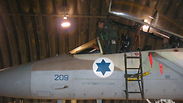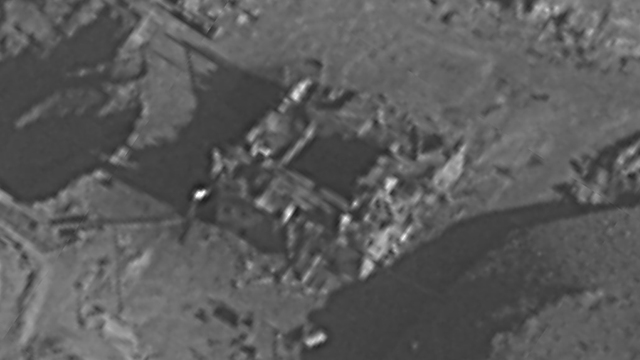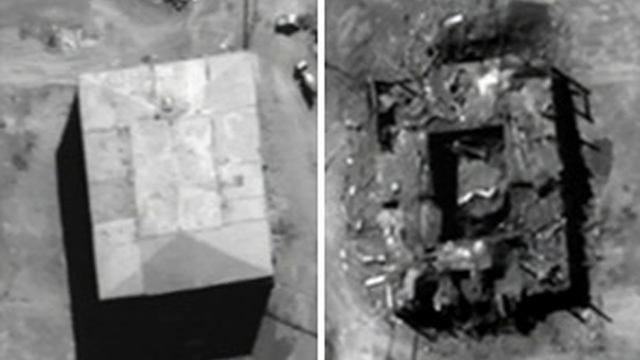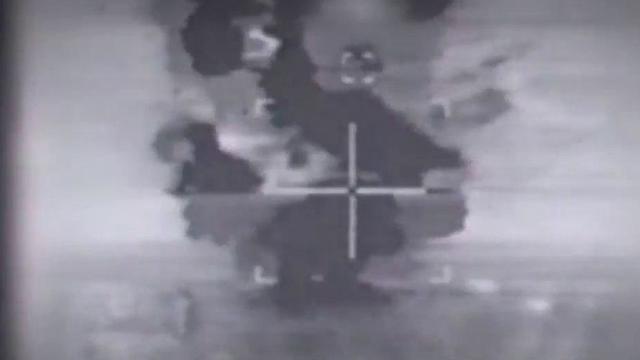

Pilot of 1981 Iraq reactor attack: Our operation was more dangerous than Syria one
Leading pilot Col. (res.) Ze'ev Raz says strike on Saddam Hussein's nuclear reactor was done at greater distance, with no aerial refueling, while Iraqi aerial defense was on high alert and the Israeli pilots did not use smart bombs; Maj. Gen. (res.) Amos Yadlin says biggest risk of Syria strike was that it could've led to war.
Col. (res.) Ze'ev Raz, who led the Israel Air Force's strike on Iraq's Osirak nuclear reactor on June 7, 1981, has asserted that operation was far more difficult and complex than the 2007 attack on Syria's nuclear reactor in Deir ez-Zor, for which Israel officially claimed responsibility on Wednesday.
For the operation in Iraq, the air force used F-16 fighter jets, which had to traverse a distance of 1,000 km—with some flying over Saudi Arabia—to reach the reactor, which was set to go live within a year.
"The distance in our case was much bigger," said Raz, 70. "In Syria, it was not an attack a great distance away."
"It was borderline as far as fuel was concerned, because only a year later in 1982 did the air force start aerial refueling. I remember we landed back with very little fuel left. We knew it was a risk, but it was decided to go for it. Because had we bombed a year later, it would've been a 'hot' reactor, and we would've done great damage to the environment from the radiation," he explained.
Raz pointed to other major differences between the two operations, asserting the attack he participated in was of a higher quality.
"We were forced to prepare for the Iraqi aerial defense at a time when the Iraqi military was at war with the Iranians, and it was supposed to be a hornet's nest. The fact they didn't identify us and didn't lock their radars on us was very surprising to me. We thoughts we'd be discovered 15 minutes before the bombing, or definitely on the way out," he said. "The guys who bombed in Syria attacked a structure with no defense around it, it didn't even have a fence so as to not draw attention to it."
"The second thing is the differences between the bombs used in our attack and in theirs. They had smart bombs, we had normal bombs, which shows the accuracy of our pilots," he added.
Raz dismissed the celebrations in the media over the Syria attack, saying he preferred looking ahead. "The publication is a formal thing of something that is already over. But the real story is the facilities in Iran, and the reactor in Pakistan, where it's enough for the regime to change to a hostile one for it to become a problem. I'm very concerned by this," he said. "I think it's not for nothing that there is opposition to attacking the facilities in Iran, because the Iranians have proven in the past that they know how to retaliate violently to attacks of this nature, as they had done in Buenos Aires."
Brig. Gen. (res.) Israel Shafir, another pilot who participated in Operation Opera to destroy Saddam Hussein's nuclear reactor, was also the commander of the IAF's Flight Academy in 2007, and trained the pilot who led Operation Outside the Box in Syria.
But despite knowing it was his cadet who led the attack in Deir ez-Zor, the two never spoke about the matter, nor did they compare stories from Iraq and Syria. "I suppose it's because he's a shy guy, one who is very humble," he explained.
Shafir said there was great concern the Israeli jets would be shot down by Iraqi aerial defense, which increased tensions. "In the briefing before the operation we received dates from the IDF chief," Shafir recounted. "It was in case some of our planes are shot down and our men are taken captive. We even got Iraqi money so we could survive."
Despite the concerns, the pilots did their job well. "During the mission, you repress all of your feelings and concerns and focus on your work. But I remember that Ilan Ramon and I, who were in the last two planes, talked about how we might be going on a one-way flight. In the end, when everyone returned home, there was a great relief," Shafir added.
While today the F-16 is a commonly used fighter jet in the IAF, the attack in Iraq was the F-16's first operational flight. "We started the training (for the operation) upon our return from training in the US. We established two new squadrons and flew to Iraq with a plane that until that point had done no operational flights or taken part in any big operations," Shafir said. "The fact it was all a success was thanks to successful planning, and much like the Syrian operation—it was also thanks to the pilots' abilities. Perhaps the most notable thing about our operation was that we flew far, to a facility we didn't have a lot of information on."
"The public may have only just learned the details about the operation, but it's just the tip of the iceberg," Shafir added. "The articles that were published showed the planning process, which is very similar to every air force operation, even in weekly operations. The public should know this, that every operation goes through a similar process. Of course, the level of alertness in this operation was far more significant because of the target."
Maj. Gen. (res.) Amos Yadlin, who was also among the pilots who bombed the Iraqi reactor, said that "Operation Opera was the first one. This is where the Begin Doctrine was established. I've been speaking about this operation for years and said the real hero of the operation was Prime Minister Menachem Begin, who made a decision against so many of his ministers and against the heads of the security and intelligence bodies. Operationally, this was a very difficult operation. However, it didn't hold the risk of war. The biggest risk of the operation in Syria was deteriorating into war."


















